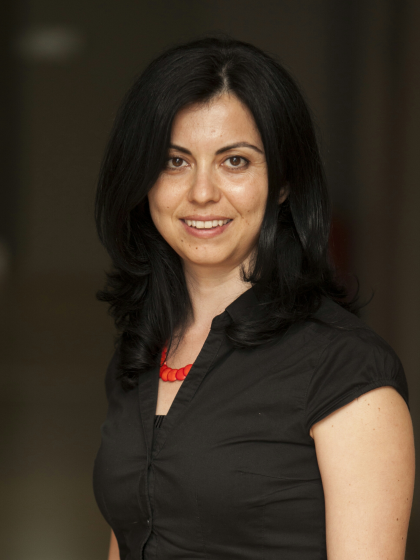C. (Çigdem) Bozdag Bucak, Dr

Ongoing projects
Migrant generations in the digital society: a multi-level study of socio-cultural factors influencing digital inclusion
-
Project acronym: DigiMig
-
Funding: NWO Talent Programme - Vidi Grants
-
Duration: 01. January 2024 - 31.12.2028
Project description: The ability to effectively use digital technologies has become a prerequisite for participation across many spheres of social life. While digital inclusion implies that all citizens have equal chances to participate in the digital society, such inclusion is shaped not only by individual factors such as motivation and digital literacy but by social and cultural factors such as gender, age, socio-economic background, ethnicity, disability and migration background. Existing research points to the relative disadvantage of some migrant groups in participating in the digital society. In studying the use of digital media by migrant generations in the Netherlands, the DigiMig project advances a comprehensive, multi-level approach to studying digital inclusion that encompasses users’ perspectives, public policies and initiatives, educational practices, and their inter-relations. Integrating the fields of media, migration and youth studies by focusing on the debate on digital inequalities, the proposed project aims to:
-
Provide an in-depth analysis of patterns of digital inclusion of different migrant generations through a qualitative, multi-methods study focusing on families and comparing the urban context of Rotterdam and rural areas of Groningen (sub-project 1).
-
Critically analyse approaches to digital inclusion in national (Dutch) and local (Rotterdam and Groningen) policies and public initiatives and propose a more inclusive framework with recommendations based on expert interviews and policy analyses (sub-project 2) and the results of user analyses in sub-project 1.
-
Develop more inclusive practices of digital literacy education in culturally diverse primary schools through participatory action research with teachers, students and parents (sub-project 3).
-
4. Develop a novel multi-level conceptual framework for studying and practising digital inclusion that sufficiently considers socio-cultural factors (sub-project 4).
Finished Projects
Intercultural Digital Media Education for Social Inclusion of Socioeconomically Disadvantaged Youth in the Urban Migration Society
-
Project acronym: INCLUDED
-
Funding: Marie Sklodowska Curie Actions, Horizon 2020
-
Duration: 01. August 2019 - 30.11.2023
-
Place: University of Bremen
INCLUDED is an interdisciplinary participatory action research and is supported by the Marie Sklodowska Curie Actions (MSCA) of the European Research Framework Horizon 2020. The project will be carried out in the Faculty of Education at the University of Bremen with the cooperation of ZeMKI (Center for Media, Communication and Information Research) between August 2019 and July 2023.
INCLUDED develops an innovative integrated approach to digital media literacy and intercultural competence arguing that they can mutually support each other in order to increase young people's chances for social inclusion. Social inclusion of socioeconomically disadvantaged youth with diverse cultural backgrounds is one of the major and urgent challenges European societies face today. Social inclusion of disadvantaged youth can be supported by improving their digital media literacy and intercultural competence because (1) they require digital skills to be able to economically, culturally and socially participate in today’s high mediatized societies; (2) intercultural competences are key for everyone in the migration society for increasing social cohesion of people of diverse backgrounds. Furthermore, these competences may support the development of democracy education by fostering critical attitudes and communication skills against discrimination.
Existing research on digital inclusion points out to inequalities in relation to gender, socio-economic and cultural backgrounds, but fails to provide contextualized analyses of the dynamics behind these inequalities Moreover, the role of schools for improving digital skills of socioeconomically disadvantaged youth in the urban migration society is not sufficiently addressed. INCLUDED aims to fill these gaps through an in-depth analysis of digital media use of disadvantaged youth in a school located in a poor migrant neighbourhood. INCLUDED will also develop a participatory action by designing and applying teaching modules for digital media education in diverse societies.
